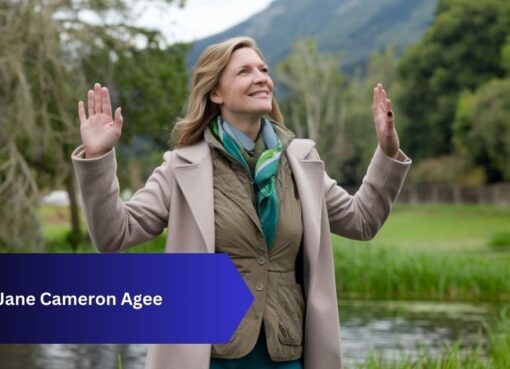Kacmun – The Unique MUN Conference!

Attending KACMUN was a transformative experience for me. It not only enhanced my understanding of international relations but also boosted my confidence in public speaking and diplomacy.
KACMUN, the Korean American Coalition Model United Nations, is a unique conference focused on global diplomacy with an emphasis on Korean and Asian issues. It enhances participants’ public speaking, negotiation, and leadership skills.
“In this article, we will dive into the world of KACMUN, exploring how this unique Model United Nations conference stands out. Discover how KACMUN blends international diplomacy with a focus on Korean and Asian issues, and learn how its supportive environment can transform your understanding of global relations and leadership.”
What is KACMUN?
KACMUN, or the Korean American Coalition Model United Nations, is an esteemed conference that provides students with a unique opportunity to engage in international diplomacy and global issues. Established by the Korean American Coalition, KACMUN aims to empower participants, especially Korean American youth, by immersing them in simulations of the United Nations.
The conference focuses on a range of topics, including those pertinent to the Korean peninsula and broader Asian affairs, while also addressing global challenges.
Through its supportive environment and emphasis on mentorship, KACMUN fosters critical skills in public speaking, negotiation, and diplomacy, making it a pivotal experience for aspiring global leaders.
Why is KACMUN unique compared to other MUNs?
KACMUN stands out from other Model United Nations conferences due to its distinctive focus and inclusive environment. Unlike many MUNs that cover a broad range of global issues, KACMUN places a particular emphasis on Korean and Asian affairs, offering a specialized perspective on regional and international topics.
This focus provides a unique context for participants to explore and debate issues relevant to the Korean peninsula and the wider Asian region.
Additionally, KACMUN is known for its supportive and mentorship-driven approach, where experienced delegates guide newcomers, fostering a nurturing atmosphere that enhances learning and engagement.
Moreover, KACMUN integrates cultural elements and real-world challenges specific to the Korean American community, enriching the conference experience. This dedicated approach not only broadens participants’ global understanding but also strengthens their connection to pertinent regional issues.
How does KACMUN impact personal growth?
KACMUN has a profound impact on personal growth by enhancing several key skills and attributes in its participants. First, it significantly boosts public speaking and communication skills, as delegates practice presenting their ideas and negotiating with others in a formal setting. Second, it fosters critical thinking and problem-solving abilities, as participants research complex global issues and develop strategic solutions.
Additionally, KACMUN helps build confidence by providing a supportive environment where students are encouraged to voice their opinions and engage in debates.
The mentorship and networking opportunities also play a crucial role in personal development, offering valuable insights and connections that can shape future academic and professional paths.
What types of workshops are available at KACMUN?
- Public Speaking and Debate Training: Focuses on improving delegates’ oratory skills, confidence, and effectiveness in delivering speeches and participating in debates.
- Research and Position Paper Writing: Guides delegates on how to conduct thorough research and craft well-structured position papers that articulate their assigned country’s stance on various issues.
- Diplomacy and Negotiation Skills: Teaches strategies for effective negotiation and diplomacy, helping delegates navigate complex discussions and build consensus.
- Resolution Drafting: Provides insights into drafting and proposing resolutions, a crucial aspect of MUN conferences, emphasizing how to create impactful and feasible solutions.
- Cultural and Regional Issues: Offers specialized sessions on Korean and Asian regional issues, enhancing delegates’ understanding of the specific topics relevant to KACMUN.
- Leadership and Teamwork: Focuses on developing leadership qualities and effective teamwork strategies, helping delegates collaborate efficiently and lead their committees.
- Crisis Management: Teaches how to handle and respond to unexpected scenarios or crises during the conference, honing quick thinking and adaptability.
How can alumni contribute to KACMUN?
Alumni play a crucial role in enriching the KACMUN experience by offering their valuable insights and support. They can serve as mentors, guiding current delegates through the nuances of MUN and helping them refine their skills in diplomacy, public speaking, and negotiation.
By leading workshops and training sessions, alumni share their expertise and practical knowledge, which benefits participants in their preparation and performance. Additionally, alumni contribute to the conference’s success by volunteering for various organizational roles and supporting fundraising efforts to sustain the program.
How can alumni contribute to KACMUN?
Mentoring New Delegates
Alumni can play a crucial role in KACMUN by mentoring new delegates. Their experience and insights can help guide newcomers through the complexities of MUN conferences. By providing advice on research, debate techniques, and conference strategies, alumni can make the transition smoother for those new to the KACMUN environment.
This support not only boosts the confidence of new delegates but also enhances their overall experience, contributing to their success at the conference.
Offering Workshops and Training
Another valuable way alumni can contribute is by offering workshops and training sessions. Alumni with expertise in areas such as public speaking, diplomacy, or specific regional issues can lead sessions that enrich the KACMUN program.
These workshops can cover advanced topics and provide practical skills that benefit both new and returning participants. Their contributions help elevate the quality of the conference and ensure that delegates are well-prepared for their roles.
Sharing Professional Insights
Alumni can also share their professional experiences and insights with current participants. By discussing their careers in international relations, diplomacy, or related fields, they provide valuable real-world context to the theoretical knowledge gained at KACMUN.
Supporting Fundraising and Development
Finally, alumni can support KACMUN through fundraising and development efforts. By contributing financially or helping organize fundraising events, alumni can ensure that KACMUN has the resources needed to continue its impactful programs.
Their support can also help expand the conference’s reach and accessibility, making it possible for more students to benefit from the KACMUN experience.
Providing Networking Opportunities
Alumni can facilitate networking opportunities for current delegates by connecting them with professionals and organizations in the field of international relations. By leveraging their own professional networks, alumni can introduce delegates to potential mentors, internships, or career opportunities.
These connections can be invaluable for students looking to build their careers and gain practical experience in diplomacy and global affairs.
When does the KACMUN conference start?
The KACMUN conference typically starts in early April each year. Specific dates can vary, so it’s important to check the KACMUN website or contact the organizers for the exact schedule of the upcoming conference. The event generally begins with Opening Ceremonies, setting the stage for a series of committee sessions and debates that continue over several days.
During the conference, delegates engage in detailed discussions, negotiate resolutions, and participate in various workshops and social events. The schedule is designed to provide ample time for preparation, collaboration, and presentation, ensuring a comprehensive and immersive experience for all participants.
FAQs:
1. What is the primary goal of KACMUN?
KACMUN aims to educate and engage students in international diplomacy and global issues, with a focus on Korean and Asian affairs, while fostering leadership and public speaking skills.
2. Who can attend KACMUN?
KACMUN is open to students from various backgrounds who are interested in international relations, diplomacy, and global issues, regardless of prior MUN experience.
3. Are there scholarships available for KACMUN?
Yes, KACMUN may offer scholarships or financial aid to help cover registration fees for eligible participants. Application details for scholarships are usually available on the KACMUN website.
4. What should I prepare before attending KACMUN?
Participants should research their assigned country or topic thoroughly, prepare a position paper, and review the conference schedule and rules of procedure.
5. What should I prepare before attending KACMUN?
Participants should research their assigned country or topic thoroughly, prepare a position paper, and review the conference schedule and rules of procedure.
6. How are committees structured at KACMUN?
KACMUN committees are organized around various global and regional issues, with each committee simulating a specific aspect of international diplomacy or UN operations.
7. Can I participate if I am not fluent in English?
While proficiency in English is important for effective communication, KACMUN encourages participation from non-native speakers. There may be additional support available for those who need it.
conclusion:
KACMUN offers a unique and enriching experience for students interested in global diplomacy and international relations. By focusing on both Korean and Asian issues, the conference provides valuable insights and fosters essential skills in public speaking, negotiation, and leadership.
Read more:



Leave a Comment